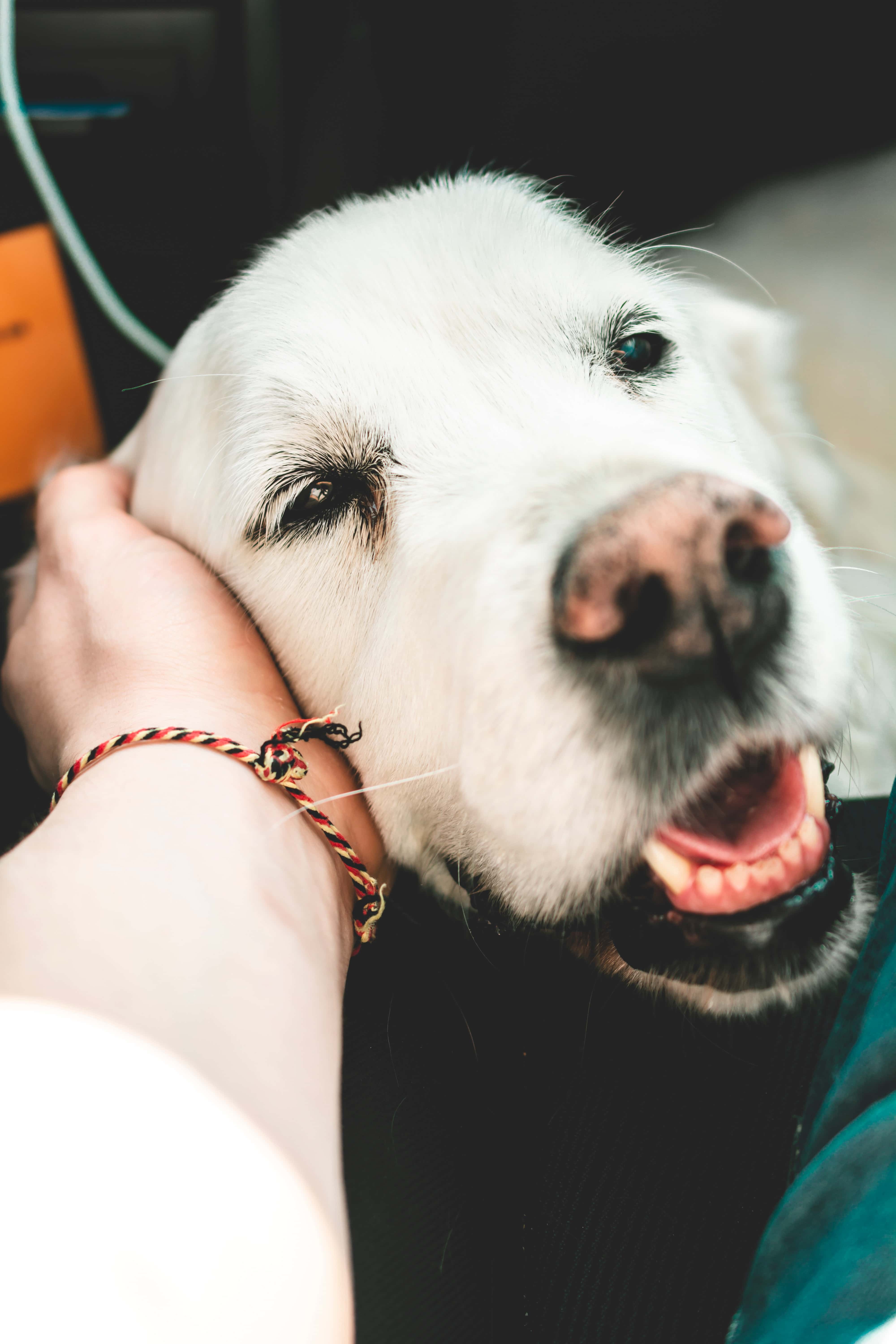Thinking of becoming a veterinary surgeon? Pros and cons of being a small animal vet.

Are you considering studying veterinary medicine but you are not sure it is for you?
After a few years in practice and always getting the same comments when I told friends I was a vet (“How sweet, you get to cuddle with puppies and kitties all day!”), I have realised that the mental image people have about what veterinary surgeons actually do is not particularly accurate. Looking back to my childhood, I would have liked for someone to explain the realities of what the job involves to know what to expect, and that’s why I decided to write this post.
So these are some of the things you should consider if you’re thinking about becoming a vet. Lets start with the bright side of things.
Pros:
-
You get to be around animals for a good part of your work day (although they may not be so happy to be around you).
-
You have a broad range of jobs you can do with your degree: Small animals, equine, farm animals, pathology, charity work, wildlife, zoo, public sector veterinarian, research, teaching…
-
Being a vet is all about passion for animals and medicine, if you are considering getting into this profession for the money or the social recognition, do yourself a favour, DO NOT. What will keep you going is knowing that you are making a difference for animals and their owners, that you are there to help them feel better and prevent them from getting ill. You have the power to improve lives and that is a wonderful thing.
-
Salary for experienced vets is above average, with a starting salary at around the UK average
-
If you are lucky to find a good team (which is usually the case), you get to share your time with people that have the same passion for animals and can develop wonderful friendships and a good quality support network.

-
If you like mystery or problem solving, you will love internal medicine. It can be very challenging to be given a list of symptoms, ask the right questions, find some more clues on the clinical exam and make a list of differential conditions that may be affecting the pet.
-
For people who like crafts and manual work, surgery or dentistry can be a very satisfying.
-
Being a veterinary surgeon in general practice is one of the most varied roles there are. So if you are the kind that gets bored easily and you enjoy variety, you will get to be a dentist, a GP, a surgeon, an ultrasonographer, a dermatologist, a radiographer, a pathologist, a therapist, a dietitian, a parasitologist, a pharmacist, a behaviourist, a laboratory technician, a cardiologist… All in one!
-
Being on your feet all day will keep you fit. You will find out that you have done a lot of steps or gone up and down the stairs quite a lot during your work day.
-
If you enjoy chatting and interacting with people, you will get to meet an average between 20 and 40 different people each day as a vet.
-
You can get cheaper treatment and products for your own pets.
-
In many countries, like the UK, since there is a huge demand for vets, you have a lot of power in choosing and negotiating your own terms on your employment. It will be quite easy to find a job and you are usually able to work part time and still make enough money to live. You can also choose to be a locum vet, being able to decide when and where you work and making more money per day.
-
Being a vet can be very rewarding: sometimes you will save or improve lives, you will prevent illnesses and give advice on how to best care for each pet, other times you will end their suffering with euthanasia, but even though it is a difficult decision, most owners will be very grateful to you because but you made that experience easier for them. You may get lovely cards, chocolates or flowers and you will get owners that ask specifically for you each time they bring their pet to the vets.

-
You can build truly deep and meaningful relationships with some of your clients, that will trust you and care about you. These kind of clients tend to have a very good effect on our self-confidence and consultations with them can be very enjoyable, almost like catching-up with a good friend.
-
You can train to specialise in a particular field you enjoy.
-
Usually, practices will pay for any further training that you choose as long as it is relevant for your work.
Cons:
-
Training takes several years (usually 5-6) to complete and a lot of personal and economical effort (up to around 9k per year in the UK, less in some European countries, more in the US).
-
Wages are not particularly high for the amount of training and responsibility required. In the UK you will start with around 30-35k and once you get to around 50k a year (usually after around 5-10 years of experience), your salary will barely increase over time.
-
Your career progression will depend a lot on the kind of practice you land in initially. Some employers or colleagues will be very willing to help you and teach you, some other will offer very little support and give you more work than you should handle.
-
Many animals will dislike you, be scared and even show varied levels of aggression that can sometimes make them difficult or even impossible to handle. And we can’t really blame them, we would do the same in their place! There will also be a number of them that don’t mind being there or are even happy to see you and get some attention.
-
As a vet, you are expected to perform procedures that are not for the squeamish: empty anal glands (worst smell in the world), express abscesses, scratch the surface of the eye (keratotomy), encounter or remove parasites both external (maggots, fleas, ticks…) and internal (intestinal worms), dealing with cases of animal abuse and torture, performing euthanasias and seeing animals dying amongst others.
-
There is a high risk of getting bitten or scratched with subsequent scarring and potential for developing severe infections or long-term damage to nerves or tendons on your hands. Risk of accidental self-infection and contact with zoonosis (infections that can be transmitted from animals to humans).
-
High physical toll: You have to carry heavy animals around, be on your feet for most of the day, bend your back for operating, etc. After so many hours, believe me, you will be exhausted!

-
High emotional toll: This has been one of the most important factors for me, as an empath and animal lover. You have to deal with the owner’s emotions surrounding their pet as well as their economical concerns, sometimes you will have to euthanise animals because they cannot afford to treat them, some other times people will get angry at you because they do not have the money they need and blame you for it, saying that you are only in for the money. You will find animals that have been abandoned or abused and will see the worst side of human beings. People will complain sometimes about you or blame you, either at the practice or in social media.
-
Sometimes, clinical cases can be very frustrating. You will run a lot of different tests and make the client spend a lot of money and you will still not be able to find out what is going on. Sometimes the pet will deteriorate and you will not have an answer and this may affect your self-confidence.
-
Physical location: You will have to commute and you cannot work from home in most of the positions (although remote consultation type work is getting more common, but it is very difficult to get these positions as there is a lot of competition). In case of a pandemic, you will be generally required to go to work as it is a basic service. It can be a difficult job if you have any health conditions that make you be in pain or make you particularly tired or brain-foggy.
-
The contracts in the UK usually have a 3 months notice period, which is very long in comparison with most jobs. Also, in most contracts they will ask you not to work within X miles for X number of months. I would highly advise to read your contract carefully and negotiate these conditions. You are a professional in high demand and have the power and the right to decide.
-
Long hours: A typical vet surgeon day will be around 10 hours a day in practice day after day, which can be exhausting. Very often, emergencies will arrive at the end of the day and you will be required to stay for longer. If you want a 9 to 5 job and always leave on time, being a vet may not be for you. If you are happy with working longer hours, make sure you get compensated for the extra time, either with time off in lieu or being paid extra for this time (at a higher rate than your normal hours).
-
Some days will be so extremely busy with appointments and emergencies that you will feel like you are not being able to do your best for the animals. You will just have to do what you can and try to be okay with it.
-
You will make mistakes. Lots of them throughout your career. Some of them you will be able to fix, some others will result in an animal getting really ill or even dying. Sometimes you will have done your best and not made any mistakes and things will still go very wrong. If you don’t want this to seriously affect your mental health you will have to come to terms with the fact that we are humans, we have good and bad days and that everyone makes mistakes, you will need to learn to forgive yourself for this.
-
Veterinary is one of the careers with a higher mental health impact. Depression, anxiety and burnout are extremely common and we have one of the highest rates of suicide. If you are prone to these conditions, I would perhaps consider a different career.

Neutral:
-
People: If there is something I have learnt over my 6 years in small animal practice is that this job is about 60% about dealing with the people and only 40% about dealing with animals. Being a vet requires a fair amount of “people skills”, or at least you will get by much better if you have them or develop them. Being able to convince an owner that a treatment is better for their animal than other, even if it costs double, is an advantage, but for this you will need to seem knowledgeable, trustworthy and confident (even if you are not). Clients also like to chat when they come into the practice and will trust you more if you seem interested in their life and their pets and nurture the relationship between you. Being empathic and understanding of their situation, trying to adapt the treatments and solutions to their life and finances is really important. Sometimes you will have to act as a therapist or a friend and give them advice from a more personal or emotional point of view
-
Inconsistent workload: Sometimes you will be really busy and rush off your feet (which some people may enjoy), and others be extremely quite and bored. If you like the latter, here’s a piece of advice: Never say the word “quiet” (also known as the “Q” word).
I hope you have enjoyed this post. If you have any further questions about what being a veterinary surgeon is like, please leave us a comment, I am always happy to help!